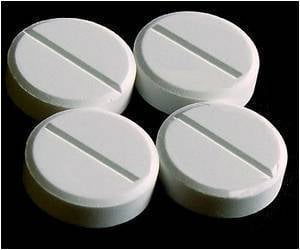Using Non-steroidal anti-inflammatory drugs (NSAIDS) regularly may increase the risk of cancer-related death in women, reveals study.

- Endometrial cancer is the abnormal proliferation of cells in the inner lining of the uterus.
- Regular use of anti-inflammatory drugs have increased the risk of cancer-related deaths in women, finds study
- It is advisable that women who use Non-steroidal anti-inflammatory drugs regularly must consult the physician before taking the drugs.
TOP INSIGHT
Long-term use of non-steroidal anti-inflammatory drugs may increase the risk of cancer-related death in women.
The study findings were published in the Journal of the National Cancer Institute.
Endometrial cancer occurs when there is an abnormal proliferation of cells inside the endometrium (the inner lining of the uterus). Regular NSAID use may increase the risk of endometrial cancer by 66%. The cancer risk was strong among patients who had used NSAIDS for more than 10 years.
Theodore Brasky, PhD, lead author, cancer epidemiologist, said, "There is a increasing evidence that chronic inflammation is involved in endometrial cancer and progression and recent data suggests that inhibition of inflammation through NSAID use plays a role."
"This study identifies a clear association that merits additional research to help us fully understand the biologic mechanisms behind this phenomenon. Our finding was surprising because it goes against previous studies that suggest NSAIDs can be used to reduce inflammation and reduce the risk of developing or dying from certain cancers, like colorectal cancer."
David Cohn, MD, gynecologic oncology division, said, The study results were fascinating and required further investigation. It is necessary to remember that endometrial cancer patients are more likely to die of heart disease, so women who take NSAIDs for heart attack should continue to take the drug.
Study Limitation
The research team points out that the Information about the specific dose and NSAID use after surgery is not available.
Facts on Endometrial Cancer
- It is the fourth most common cancer in women
- Endometrial cancer is the sixth leading cause of cancer -related death in women
- The disease is found to be more common among the women who are above the age of 60.
- More than 95% of uterine cancers start from the endometrium.
- Around 53% of the cancers occur more in the developed countries.
Nonsteroidal anti-inflammatory drugs are used as pain relievers but are also used for the treatment of inflammatory conditions like arthritis, tendonitis. Some of the commonly used NSAIDS include aspirin, ibuprofen, naproxen, aceclofenac and indomethacin.
Side Effects of NSAIDS
- Stomach upset
- Ulcers
- Bleeding
- Kidney problems
- Heart problems
- Rashes
- Fluid retention (Swelling of the legs and ankle)
- Theodore M. Brasky et.al. ‘Nonsteroidal Anti-inflammatory Drugs and Endometrial Carcinoma Mortality and Recurrence’ Journal of the National Cancer Institute; (2016) doi: 10.1093/jnci/djw251
- What is endometrial cancer? - ( http://www.cancer.org/cancer/endometrialcancer/detailedguide/endometrial-uterine-cancer-what-is-endometrial-cancer)
- Endometrial cancer (cancer of the lining of the womb) statistics - ( http://www.wcrf.org/int/cancer-facts-figures/data-specific-cancers/endometrial-cancer-cancer-lining-womb-statistics)
- NSAIDs (nonsteroidal anti-inflammatory drugs) - ( http://www.rheumatology.org/I-Am-A/Patient-Caregiver/Treatments/NSAIDs)
 MEDINDIA
MEDINDIA




 Email
Email






